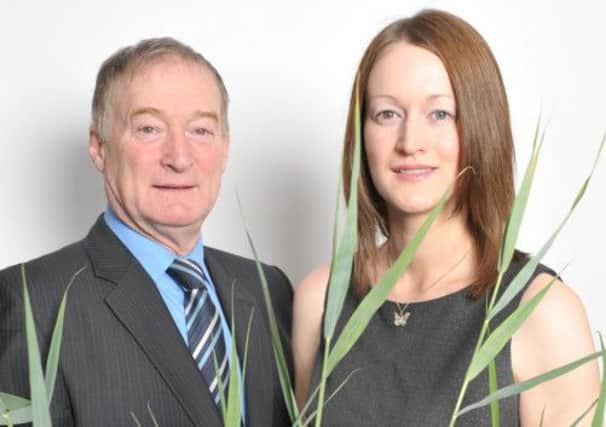Lender helped Oceans sail into calmer waters after Sudan blow


The Barnsley-based business lost its entire North Sudan operation and had to remove its team from the country because of safety concerns.
Oceans, which was founded by Lucian Gill, an expert on the use of reeds to clean polluted water caused by chemical contamination, said that “the combination of the political situation and a new bank manager” meant securing development funding from its bank became difficult.
Advertisement
Hide AdAdvertisement
Hide AdThe company switched to another bank before turning to Clifton Asset Management’s pension-led funding offer for businesses.
Director Michelle Gill said: “We moved banks and although they were extremely supportive, we had no history with the new bank. We needed to fund the development of the business to be able to take on new projects both in the UK and overseas.
“We wanted to provide stability for the future development of the company and to rely on our own funds rather than relying on the banks.”
Working with Oceans’ bank, Clifton, using its brand pensionledfunding.com, collected together the pension funds of Oceans’ directors and granted a loan from the pension pot to the business secured against its balance sheet.
Advertisement
Hide AdAdvertisement
Hide AdA second tranche of funding was made available whereby Clifton took the intellectual property (IP) of the business, in this case its brand, and registered it as a trademark.
Ownership of the IP was then sold to the pension scheme on a sale and lease back basis.
The money has financed the development of a new sales and marketing strategy that has allowed the firm, which employs 20 people and has an annual turnover of around £1.5m, to go after new contracts around the world. Its current clients including south Sudanese oil companies such as Dar Petroleum Operating Company.
Clifton, using pensionledfunding.com, has over the last five years funded around 75 businesses in Yorkshire, the total value reaching between £4.5-£5m, with a further 17 under consideration.
Advertisement
Hide AdAdvertisement
Hide AdChairman and founder of Clifton Adam Tavener told the Yorkshire Post on a recent visit to the region that it has funded more than 1,300 small and medium-sized enterprises (SMEs) nationally. Mr Tavener said it became obvious to him in the mid-1990s that there was “a constant disconnect” between the amount of money SMEs felt they needed to grow their business and the amount banks were prepared to lend them.
He added that there is “a huge wall of demand”, with four million SMEs in the country, while pension funds in this country are currently valued at £1.5 trillion, at least £100bn of which belongs to business owners.
Clifton specialises in using IP as an asset to secure the funding. Mr Tavener said that IP is suitable as it can be owned by a pension fund and is “extremely efficient”.
Mr Tavener said: “About five per cent of the total intellectual property belonging to businesses in the UK is currently registered, 95 per cent is not. Most people don’t think they have any.”
Advertisement
Hide AdAdvertisement
Hide AdHe added: “If you have a reputation you have intellectual property, if you have a database you have intellectual property, if you have key skills and know-how and knowledge you have intellectual property, staff that like you is intellectual property.
“It could be described as the value that you attach to the business that doesn’t appear on the balance sheet.”
Last year, Clifton, which was founded in 1986, turned over around £6.7m and is expecting to have recorded profits of between £100,000-£250,000. Sales are up from £1.5m six years ago and are expected to hit at least £8m this year. Six years ago Clifton employed 20 people. Today, it employs more than 100.
Mr Tavener said strong growth areas for the business are the legal and accountancy sectors.
Advertisement
Hide AdAdvertisement
Hide AdThe plan is for the business to float on the main market in three or four years’ time, depending on market conditions, he said.
Clifton recently launched a website dedicated to pension-led funding, which provides an online resource for business owners and their advisers.
The majority shareholders in Clifton are Mr Tavener and his business partner Neil Greenway.
How the pension process works
THE first stage of the pension-led funding process is an assessment of company accounts, track record, business plan and funding structure by a pension specialist.
Advertisement
Hide AdAdvertisement
Hide AdOnce the specialist is satisfied there are strong and sustainable business foundations, the business owners or directors set up a SSAS or SIPP pension scheme and transfer some, or all, of their individual pension funds into it. If IP is being used as an asset to secure the funding, an independent IP valuer will be commissioned to establish its value.
Then, the pension’s trustees agree to buy some, or all, of the IP assets from the business, or loan money to the firm secured against the IP. With a sale and lease back, the scheme sets up a bank account and releases an agreed sum to the company, which then begins making lease payments back to the pension scheme.